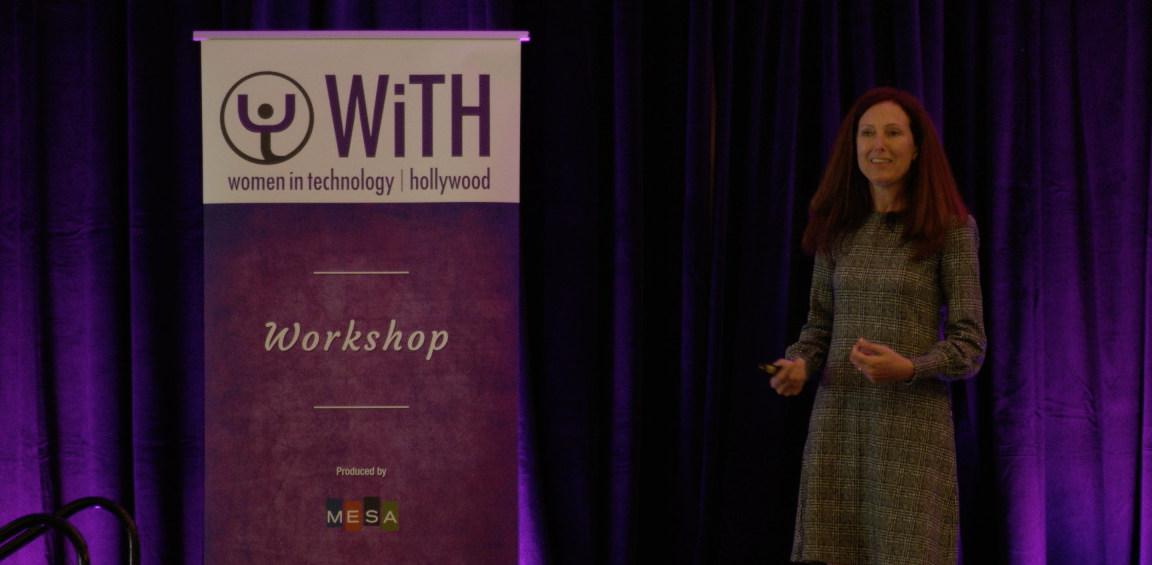Connections

WiTH Workshop: Tackling Unconscious Bias
Story Highlights
LOS ANGELES — Kelly Watson, co-founder and managing partner of Orange Grove Consulting, which specializes in women’s leadership programs, sees a two-fold problem when it comes to women and their careers today: both the workplace and women themselves are holding them back in their careers.
Watson offered up both examples and solutions Feb. 27 as part of a keynote conversation at the Women in Technology: Hollywood (WiTH) workshop “Unpacking Unconscious Bias,” held before the Smart Content West Summit.
“A lot of CEOs think, ‘Well, we have a lot of women now at the bottom of the pipeline, that will move itself up, and we’ll have female leaders eventually,’” Watson said. “Well, that’s not the case.” She pointed to a study that showed it could take another 100 years for parity at the C-Suite level the way things are going.
And one major mistake being made is to think that millennials will pick up the slack: while 50% of millennial men say their career will take precedence in the household, only 26% of millennial women say the same. “So they’re already starting out thinking they’re not going to be the bread winner,” Watson said.
She shared data from yet another study, showing how women exhibited a certain ambivalence about their careers, that it was often either have a family life, or a career, but not both. That study also showed there was a disconnect between what makes a good homemaker and a good career-woman, and that the skills necessary for the two were believed to be not compatible, and that there was an internal, unconscious bias among women, where they buy into the nonsense that they can’t do certain things.
“Part of our work is to get people to understand that there are biases,” Watson stressed. “And the problem is it impacts everything, hiring, firing, promotions. Frankly, you have to reframe this, ‘I’m responsible for my financial future, I’m responsible for me.’”
Corporate America constantly loses skilled women workers because of family obligations, but also because the workplace-home environment combined asks women to do things that aren’t expected of men. Watson suggested that women professionals should look to take some of the pressure off of themselves, where they can. “There’s no perfect mom award for doing it all myself,” she said. “Women are adhering to a standard of the ideal woman that has three components: do it all, look good, and be nice. That’s the ideal woman, right? She does it all, she’s got the career, she’s got the kid on the hip, she looks good … and be nice. The habits fall under this, but so too do the assumptions. Why is it that we take [all this on]?”
And the loss of women in professional leadership roles hurts a company’s business: “Before we’re 30% of any group, we change before the group does,” Watson said. “It’s at 30% when the group dynamic has to change.” Diverse groups with diverse voices almost always perform better than those that aren’t “but we keep going back to the norm.”
And with the business world of technology in a constant state of flux, “If we’re not at the table, what does that world look like?” she said.
Produced by the Media & Entertainment Services Alliance (MESA), in association with the Hollywood IT Society (HITS) and the Smart Content Council, Smart Content West was sponsored by Amazon Web Services, MicroStrategy, NeuLion, MarkLogic, SAP, Bob Gold & Associates, Ad-ID, DEG: The Digital Entertainment Group, and the Entertainment Merchants Association.









